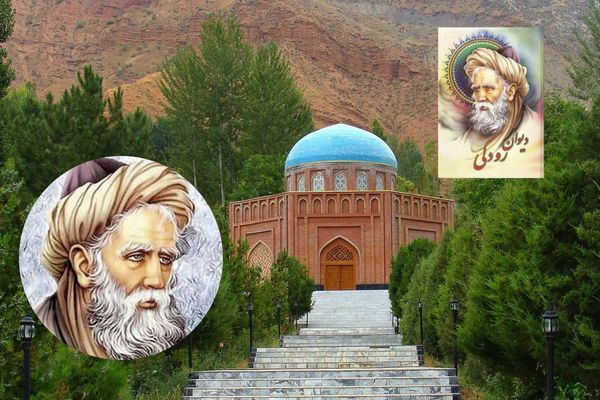Rudaki: The Father of Persian Poetry
Abu Abdullah Ja'far ibn Muhammad ibn Hakim ibn Abdul Rahman ibn Adam Roudaki Samarkandi, a renowned Persian poet of the Samanid era, lived in the 4th century AH (10th century CE). He is considered the master of poets of the early 4th century AH in Iran. Some accounts suggest he was blind from childhood, while others claim he lost his sight later in life.
Roudaki was born in a village named Banuj Rudak, located in the Rudak region near Nakhshab and Samarkand. He is widely regarded as the first great Persian poet and the father of Persian poetry. Roudaki gained immense popularity and wealth at the court of Amir Nasr Samani, but in his later years, he faced neglect from the rulers. He eventually returned to his birthplace, Banuj Rudak, where he passed away in 329 AH (941 CE).
Life and Flourishing Era
Rudaki was born in the mid-3rd century AH in the village of Panj Rudak near Samarkand. Some sources claim he was blind from childhood, while others believe he lost his sight during his lifetime.
During the Samanid era, Rudaki entered the court of Amir Nasr Samanid and quickly gained immense popularity. During this period, he achieved great wealth and fame, and his poems resonated throughout Iran.
Works and Poetic Style
Many works of Rudaki have survived, showcasing his mastery of the Persian language and his poetic skill. His poems are often romantic, laudatory, and lyrical, while also containing deep philosophical and social insights.
Rudaki’s poetic style is simple and fluent, yet it possesses a unique elegance and beauty. He was highly skilled in using metaphors and similes, able to convey deep meanings with simple words.
Rudaki’s Legacy
With his poems, Rudaki gave the Persian language an independent identity and paved the way for great poets after him. His influence on poets like Rumi and Hafez is very evident.
Final Years and Death
In his later years, Rudaki fell out of favor with the rulers and returned to his birthplace. He eventually passed away in 329 AH in Panj Rudak.
Importance of Rudaki in Persian Literary History
Rudaki can be considered one of the most important figures in the history of Persian literature. With his poems, he gave the Persian language an independent identity and transformed it into one of the richest and most beautiful languages in the world.
Summary
Rudaki, the great Iranian poet, became known as the father of Persian poetry with his beautiful poems and fluent style. His influence on subsequent poets has been profound, and his works continue to be studied and admired by enthusiasts of Persian literature.
Notable Points:
- Blindness: One interesting topic about Rudaki is his blindness, which is mentioned in various ways in different sources.
- Samanid Era: The Samanid era was a period of cultural and literary flourishing in Iran, and Rudaki was one of the brightest stars of this period.
- Influence on Later Poets: Rudaki’s influence on great poets like Rumi and Hafez highlights his importance and status in Persian literature.
Sources:
- Wikipedia Encyclopedia
- Books on the History of Persian Literature
Note: This text is based on information available in the Persian source and may differ from other sources. For more information, you can refer to other reliable sources.
Sokhanvar information
Published on Sept. 7, 2024, 6:40 a.m. by @hamed
- Name: Jafar ibn Muhammad
- Persian Name:: نام به فارسی
- Alias: Rudaki
- Comments: 0
- Views: 416
Works
Jafar ibn MuhammadMany works of Rudaki have survived, showcasing his mastery of the Persian language and his poetic skill. His poems are often romantic, laudatory, and lyrical, while also containing deep philosophical and social insights.
Books
- No books added yet.

